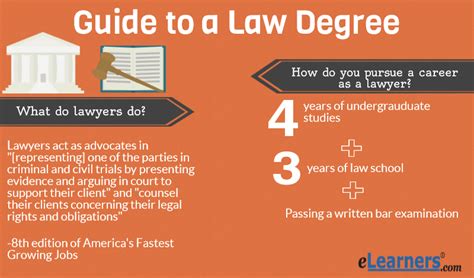Introduction

Pursuing a legal career can be a rewarding and fulfilling endeavor. However, before embarking on this path, it’s essential to understand the educational requirements. This comprehensive article delves into the question of whether a bachelor’s degree is a prerequisite for law school admission.
Requirement for Law School Admission
In most jurisdictions, a bachelor’s degree is a fundamental requirement for law school admission. According to the American Bar Association (ABA), over 99% of ABA-approved law schools mandate that applicants possess a bachelor’s degree from an accredited institution.
Bachelor’s Degree Field of Study
While a specific undergraduate major is not typically required for law school, certain fields of study can provide a solid foundation for legal studies. Some common choices include:
- Political Science
- History
- Economics
- Philosophy
- English Literature
- Business Administration
These disciplines develop analytical thinking, critical reading, writing, and research skills essential for success in law school and the legal profession.
Benefits of a Bachelor’s Degree
Obtaining a bachelor’s degree before law school offers several advantages:
- Stronger Academic Foundation: A bachelor’s degree provides a solid academic foundation, equipping students with the intellectual and research skills required for law school.
- Improved Critical Thinking: Undergraduate studies foster critical thinking and problem-solving abilities, crucial for legal analysis.
- Enhanced Writing Skills: The rigorous writing assignments and research projects in undergraduate courses refine writing skills, which are essential for effective legal writing.
- Broader Knowledge Base: A bachelor’s degree provides a broad knowledge base, exposing students to diverse perspectives and subject areas. This enhances their understanding of society and the laws that govern it.
Alternatives to a Bachelor’s Degree
In some exceptional cases, individuals without a bachelor’s degree may still be eligible for law school admission.
- Direct Enrollment: A few law schools offer direct enrollment programs for students who have demonstrated exceptional academic achievement, professional experience, or other qualifications.
- CLEP Exams: The College Level Examination Program (CLEP) allows individuals to earn college credit for prior knowledge and skills. By passing CLEP exams in specific subject areas, non-traditional students may potentially fulfill some undergraduate requirements.
Applying to Law School Without a Bachelor’s Degree
Applying to law school without a bachelor’s degree is challenging but not impossible. Applicants must demonstrate an exceptional level of maturity, experience, and academic ability. They may need to provide extensive documentation, including:
- Transcripts of previous academic work
- Letters of recommendation from professors or employers
- Personal statements explaining their motivations and qualifications
Special Considerations
- International Students: International students may have additional requirements for law school admission, such as meeting language proficiency standards.
- Military Veterans: Military veterans may be eligible for alternative admissions pathways through programs such as the JAG Corps.
- Professional Experience: Extensive professional experience in law-related fields may be considered in lieu of a bachelor’s degree in some cases.
Conclusion
In most jurisdictions, a bachelor’s degree is still the standard requirement for law school admission. However, alternative pathways may be available for exceptional non-traditional students. By understanding the educational requirements and exploring all available options, individuals can make informed decisions about their legal education journey.
